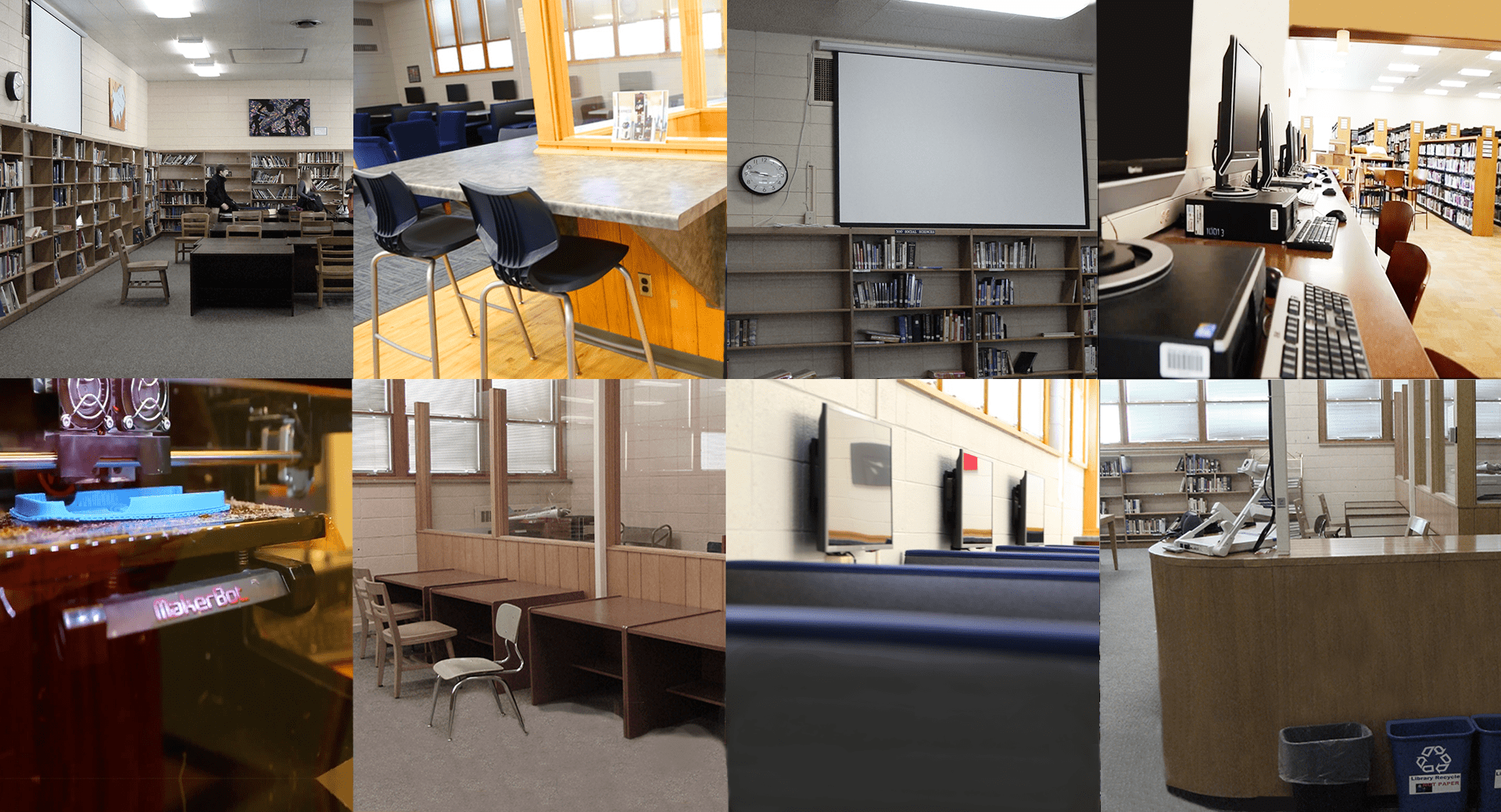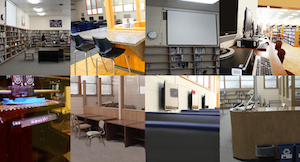
Adaptive, strong, and resilient. These are words I would use to describe the library. Just think about it – libraries have existed since 2600 B.C. They’ve remained relevant by undergoing transformation after transformation for over 4,600 years.
Librarians have turned the page on clay tablets and papyrus scrolls in favor of books and magazines, then e-books and cloud-based collections. Who’s to say the library can’t continue to evolve, this time into the heart and soul of technology initiatives?
Librarian → Technological Innovator
“Shhhh!” is no longer the most common noise to pass through the lips of a librarian. School libraries were once places for students to research and check out books, spaces to study and read in silence, where anything louder than a “library voice” was met with that familiar, repressive glare. Today’s more innovative libraries are much more inviting. They’re comfortable spaces for students to collaborate, experiment, and try their hands at inventive technology.The Alliance for Excellent Education partnered with the U.S. Department of Education to announce the Future Ready Librarians initiative, a new branch of their Future Ready Schools movement. The goal of Future Ready Librarians is to prepare these educators to lead the charge in digital learning. In their new roles as “teacher,” “mentor,” and “technological innovator,” librarians oversee makerspaces, answer students’ tech questions, and facilitate project-based learning. Today’s future-ready librarians are even taking charge of school-wide professional development; they instruct teachers on how to use technology in their classrooms and meet with administrators to discuss ways to build a more inviting and creative learning environment for students.
High-Tech Learning Centers
Envision It
What kind of character do you want your new libraries to have? The patterns of behavior and interactions within the libraries will define their utility, so it’s important to know what you envision your students doing in these new spaces. Should the libraries be places where students go to work on group projects? To design and create? To get help? To relax? To study? Perhaps you would like the flexible space to support all of the above. Regardless, your underlying strategy should be a central focus throughout the remainder of the transformation.Next, determine how you can best provide what’s needed to help bring your new libraries to life. The options are infinite: comfortable chairs, puzzles & LEGOs, stations for coding, moveable furniture, e-readers, a coffee bar, a 3D printer & makerspace, yoga mats… Don’t be afraid to think outside the box. At this phase of planning, no idea is a bad one. Be sure to collect ideas from multiple sources – teachers, staff members, parents, and especially students.
Location affects culture too. Choose open-concept spaces with a lot of natural light and fresh air, if possible. They should also be easy to access. The library at P.S. 69 in the Bronx, for instance, is strategically positioned so that students have to walk through it on their way to the main classroom floor. You could even consider spaces with doors leading outdoors; hammocks and tables could provide students with a welcome opportunity to get some fresh air while they study.
We know many of you are constrained by limited space or funding. Consider looking outside your district for assistance. Several schools in New York City’s most impoverished neighborhoods, for example, still got their dream libraries thanks to collaboration with the Robin Hood Foundation, New York’s largest poverty-fighting organization, and the state’s Department of Education.
Create It
Once you've defined a strategy for your libraries, you can officially hand the reigns to your principals, librarians, and technology teams for the design phase. Consider holding a group meeting, or even one-on-one meetings with staff from each building, to lay the groundwork for successful transformations.Market It
When your libraries are finished, the last thing to do is get your students using them. Perhaps the best way to do so is by employing some marketing techniques. Hopefully, this will not be a foreign practice to your team. From a high-level standpoint, marketing has become almost imperative for districts to engage in. With media coverage always on the rise and an increase in social media use, you have no choice but to communicate proactively if you want any say in the public’s perception of your schools.Some of these marketing strategies can play into your library marketing campaign as well. Rebrand the spaces by coming up with creative names and slogans. Then promote them, including pictures, both within the school and to your students’ parents. You can also host activities and events, and encourage student clubs and organizations to put the newly designed spaces to use. Be sure kids know that the librarians are there to help with more than just checking out books. Finally, ask for feedback. Maybe there is something you overlooked or could have done better. It’s never too late to make changes and keep improving on spaces built to inspire.
It’s time to put the 20th century library back on the shelf and start a new chapter. After all, it’s much more than old carts and books that are ready to be transformed. It’s your students’ passion for innovation, learning, and discovery, and it's just waiting to be rejuvenated.
WHAT'S NEXT FOR YOUR EDTECH? The right combo of tools & support retains staff and serves students better. We'd love to help. Visit skyward.com/get-started to learn more.

|
Lauren Gilchrist Blogger, Traveler, and Video Talent |
Lauren enjoys visiting school districts and spreading the word about creative, non-traditional approaches to universal challenges. Follow her for on-the-scene education journalism (with a little fun sprinkled in).





